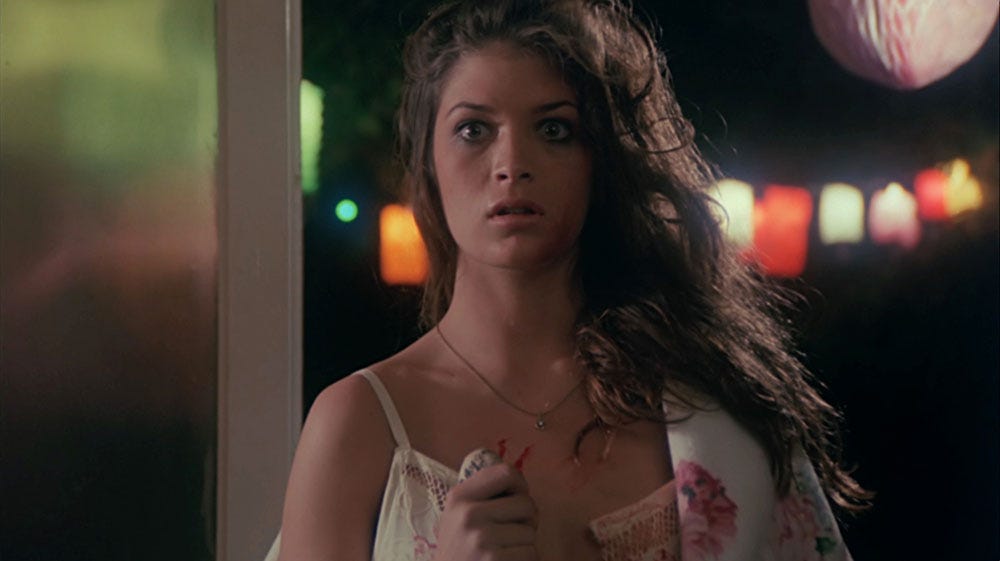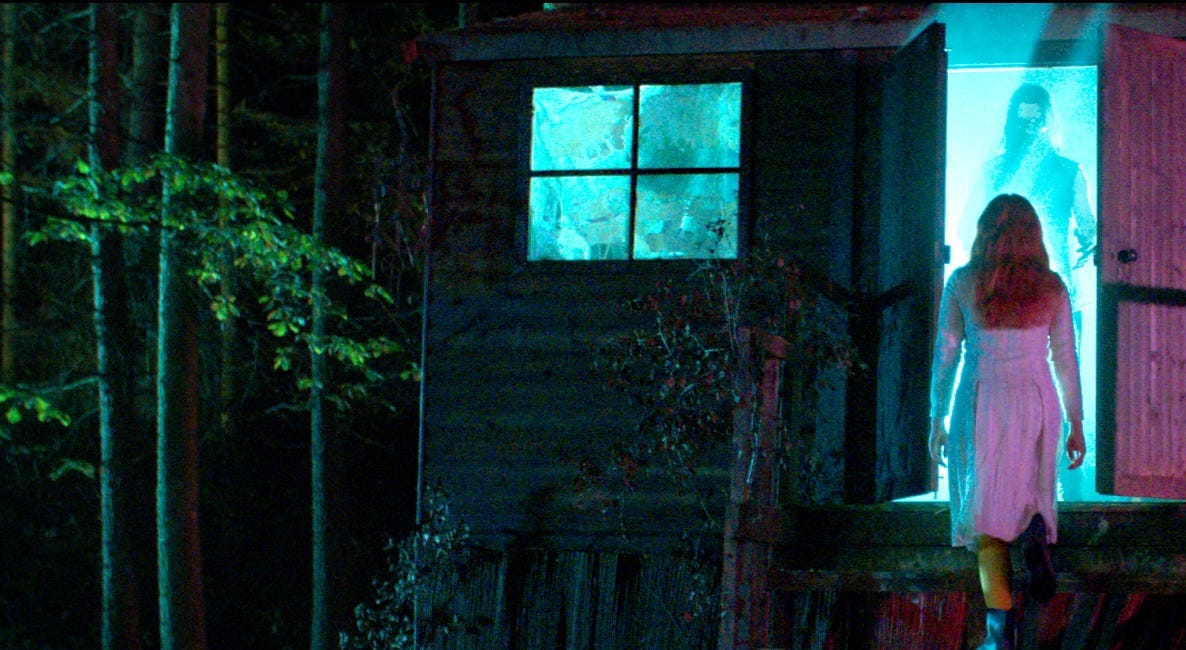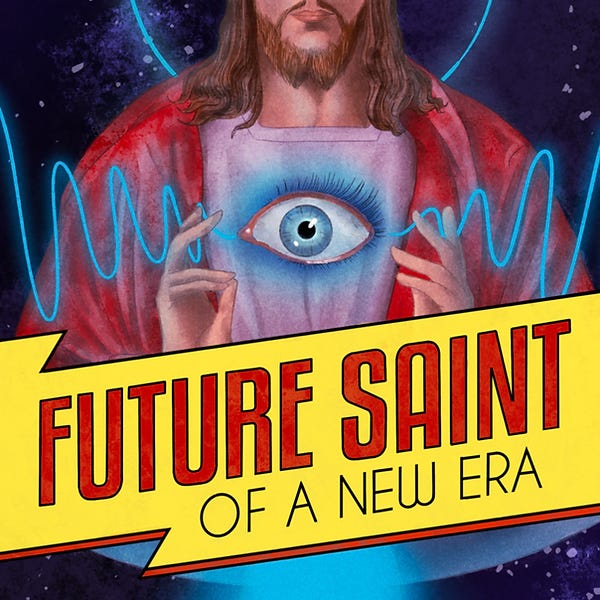"That's why I do so many projects, so I can channel that energy into something else while I'm waiting."
Lindz McLeod is one of the most prolific authors you can start reading RIGHT NOW. Here's why.
Lindz McLeod has got it all. Her debut novel Beast is coming in August from Brigids Gate Press, but over the past few years she’s been widely published in literary journals all around the world, never losing track of her roots as a “queer, working-class, Scottish writer who dabbles in the surreal”.
Topics include: going to a badly-funded high school, the pleasure of writing in two separate languages, spending a lot of time observing other people without distractions, “ordinary people doing weird and terrible things”, the current revival of Scots literature, going Good Viral for a personal story, the glacial pace of publishing and the importance of channelling your energy into something else while you’re waiting.
Enjoy.
A lot of these conversations end up featuring "exclusivity" and "class" as inevitable stumbling blocks most artists are forced to deal with in their own work. Your bio reads "queer, working-class, Scottish writer and editor who dabbles in the surreal", so you definitely got ahead of it. When did you decide "working class" was going to be one of the first three things you wanted readers to know about you?
That's a good question! I've met with people who had a problem that I identified this way, not because of my own circumstances, but because of their own insecurities about class. Being brought up in quite a poor, working-class town, going to a badly-funded high school (where if the textbook had a cover, it was considered one of the good ones), and being the first person in my family to attend university, made me feel that it was important to acknowledge these roots both for myself and others. I write in Scots as well as English, and though now Scots is undergoing its biggest revival yet, there's a certain classism inherent in doing so—I suppose it was my way of defending the importance of my working-class characters and the language I grew up hearing, which was actively discouraged at school. You were supposed to write 'proper' stories in 'proper' English and that was that—no room for dissent, no room for the musicality of language, or for the characters you saw in everyday life.
You've developed a giant body of work over what feels like a short amount of time: you've been published all over the place, from niche outlets to well established operations. Is there a particular reason why you chose the literary journal route? What drew you to the scene to begin with?
I think I'm in the minority by writing short work as well as novels, and being equally comfortable in both worlds. Most of the novels I've written have actually come from a short story beginning—I've even run courses on expanding a story into a longer work, as it seems to have become my speciality.
In the beginning, I just wanted to write in order to explore different characters and feelings. Later, I wrote in order to identify weaknesses in my writing and address them; I spent about 6 months focusing on writing really punchy flash, and found that as a result my overall work improved immensely. I've been really lucky and also worked really hard over the last couple of years—I think I've written over a million words since the start of 2021! With some places, I was just in the right place at the right time—such as when Catapult editor Matt Ortile challenged his twitter followers to write a particular style of piece on the Elmo/Rocco feud, which I did within 24 hours.
It makes my agent's life easier if I have a decent bio with a range of credits, as it shows editors that I'm a multiple-trick-pony, and it's also nice for me because whenever someone stumbles upon me (which happens occasionally) I can point them to plenty of previous work which is available freely online.
It's interesting you mention you write in Scots too - I was sentient when Irvine Welsh became a huge author published all over the world, thanks in part to the popularity of The Movie From The Book, and it took me some time to start reading him as he was meant to be read - he could switch gears like a champion in the same book, but after the big splash he made it feels like interest in Scots waned a little. (The translation choices range from "inspired" to "unreadable and tone-deaf"). Can you tell me more about its revival? What can we expect here: Scots as a neat way of letting us know how some characters talk, think, feel about the world surrounding them ? What drives you to make the choice in your own work?
I actually just delivered a workshop on this so while I'm tempted to go all the way back to King James VI, suffice to say that there's been a more recent revival than that! In part, Irvine Welsh's popularity helped, but also there are Scots authors doing really interesting things at the moment. My friend Ely Percy—whose book Duck Feet is an absolute powerhouse performance of comedy, grit, and heartbreak—also writes wonderful short speculative stories in Scots. Matthew Fitt wrote a fantastic dystopian book in Scots called But N Ben A-go-go, which filled a niche I didn't even know I'd been craving.
I think its partly that it's simply enjoyable to write in your own tongue, to surround yourself with the kind of language that you heard in the streets, parks, the factories, the bars. At the same time, Scots is a really rich mine for those willing to spend a little time in its dark tunnels. There are loads of words for which no direct English translation exists, words loaded with emotion and meaning and judgement (or lack thereof). Take splorroch, for example, which describes the sound of walking in wet mud. It has a kind of beautiful onomatopoeia to it; you can practically hear the sound of the boot landing and coming unstuck!
Oh man, "splorroch" sound exactly like the kind of word I need in a story. the sound, the LOOK of the word on the page. It's perfect. I can see why a native Scots speaker wants to carry this language in their creative work! (And: as a bilingual person here, I've refrained from leaning in on that, but on the other hand, every time I drop some choice Italian bits, because there's no real equivalent that comes to mind, folks end up getting super curious. It's wild how our perceived weaknesses can become sources of expressive strength if we tap into them mindfully.)
There's a speculative story you had out that feels especially strong like that. "Them at Number Seventy-Four" is finely observed when it comes to class and its many rituals, but knowing what I know now about your attention to different languages, that element comes through loud and clear - it feels like a meticulous diorama assembled by someone who spent years studying a kind of human being in their habitat. In this particular story, what came first for you: the idea, the imagery, the language register ... ?
As an only (and slightly intense) child, I spent a lot of time observing other people without distractions. It gave me a great foundation in character studies and, as you so kindly said, allowed me to be meticulous in relaying that specific info. I'm always weighing one word against another, so that the reader can get maximum information in minimum words. I hosted a workshop last year on the lyrics of Queen and how they can help us hone that kind of precision in our fiction— in the very first lines of Another One Bites The Dust, we're told that "Steve walks warily down the street with his brim pulled way down low, ain't no sound but the sound of his feet, machine gun's ready to go". I asked my participants to write a list of every single thing they knew or could guess about this character from this short description, and then I asked them to apply that same logic to their own first lines. It was amazing to see their work transform from vague into specificity, and they turned out some absolute bangers as a result.
It's something I'm considering a lot these days in my PhD too—I have multiple POV characters in the novel I'm writing as an accompaniment to my thesis, and it's so important to get their individual voices right and to make each stand out. One character might use a specific phrase or word or piece of slang, while another might be too prim to even contract their words; what does that tell us about the kind of person they might be?
Them At Number Seventy-Four is a particular favourite of mine, as my parents watch a lot of crime shows and are always commenting on how a particular aspect has been committed. They unintentionally inspired me, and I drew several aspects of the story (though not all—I swear they've never killed anyone as far as I know!) from my own life. It feels the most true-to-life of all my stories. Ordinary people doing weird and terrible things, then obsessing over reusable plastic bags, allowed me to showcase the comedy and the mundanity of normal life in amongst the unreal horror of the kills.
You went Good Viral for a heartfelt personal story about the way you met your partner. (It started as a Twitter thread; it later became a CNN Travel article, “She flew to New York and met her future fiancée”.) It feels like a daunting task now - we hear about someone going viral if it's Bad Viral, when they're being bashed for something they did, or when they said something careless (if not actively harmful) in order to get attention. Did this experience have any kind of repercussion on your own writing ?
That was a real shock! I expected maybe thirty people at most to see it, and then suddenly it was taking off wildly. In the end it had over 14 million views, which is amazing and also makes me want to retreat into a burrow forever. It made me much more aware of how something could take off and how people can misinterpret things too—some people misread the term BF as 'boyfriend' though it clearly referenced my best friend in the previous tweet. I actually got hate mail because people decided I'd cheated on some dude who never existed, hahaha. I think to a certain extent I'm mostly careful about what I say online anyway, because I would hate to be misinterpreted on important issues like my support of the right to abortions and birth control, trans rights, etc. The Scottish are a forthright people though, so I'll not hide the way I feel. I might say it politely, but I'll throw down any time to fight for the issues I care about.
I started this project once I fully appreciated my overall frame was (still is) "expectations, reality and the inevitable crash". Looking at your body of work - your published poetry and stories, your upcoming novel BEAST, your billion projects in the making - is there one moment that stands out to you as a case of "expectations crashing into reality" ? And is there any lesson you learnt in the aftermath ?
One of the reasons I mentor six super talented authors and give out free query tweaks etc. on Twitter is that when I first decided to query agents, I didn't know anyone who had one. I didn't know who to ask or what to ask, and the process was mystifying. I managed to cobble together ideas from a series of different articles but whew, it took a lot of effort. If I can save anyone else from wasting the time I did on stuff like that, I will gladly do it. Additionally, there's more about the publishing industry as a whole that I didn't know about; I had no idea it moved at such an unbearably glacial pace, for one thing, and that's probably been the biggest crash for me in terms of expectations. I write work at a pretty ridiculous rate, and my incredible agent (who puts up with a veritable waterfall of fiction from me with surprising cheer) has helped me figure out how to overlap projects to maximise efficiency. She's supportive of my ambition and is always willing to answer questions about how things work, which really helps. Even so, I often find myself frustrated at how slowly things more. That's why I do so many projects, so I can channel that energy into something else while I'm waiting.
If you want to support Lindz McLeod, here’s a few things you can do now:
Hard copies will also be available for pre-order a few days before launch date, so if that’s your bag, follow Brigids Gate Press;
Dive in the archive of stories and poetry available on lindzmcleod.co.uk ;
Keep up with Lindz on Twitter, or support her on Patreon.
If you liked this conversation, here’s something else you might like:
"You are moving through the story": Katy Naylor, editor-in-chief of The Voidspace
Katy Naylor is the editor-in-chief of the voidspace, a literary journal all about interactive fiction. We met online in 2021, when we were both getting published in the same journals; we reconnected a short time ago thanks to the work she’s done. Our conversation spanned a couple of Tumultuous Weeks in Tech, so what else is new.
"Everything you hear about in publishing - it's all going to happen to you": author and literary critic Naomi Kanakia
The following conversation goes LONG. If you’re seeing this as an email, the best thing would be to click “read online”. Otherwise, the text might get truncated and you would miss out on Naomi Kanakia, someone who carries such an awareness of her own strengths and weaknesses she elevates pretty much everything she touches. And besides: no way I was gonn…
"The words come first, and the truth follows after": Libbie Grant and Olivia Hawker
Hey everyone. It’s Barbara. Over the past few days I’ve been working to build a home here on Substack, so, of course, yesterday Elon Musk has made much harder to share Substack links on Twitter: riveting stuff that can be boiled down to “lol Elon petty about the Substack people”. Riveting stuff all around.





